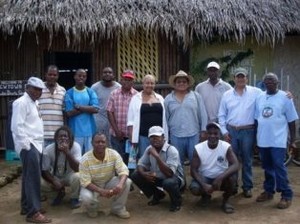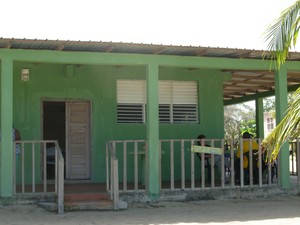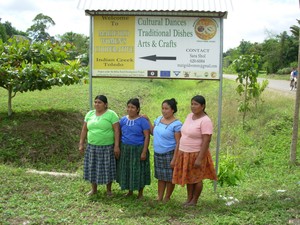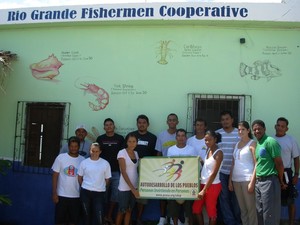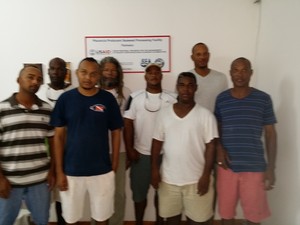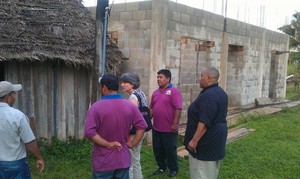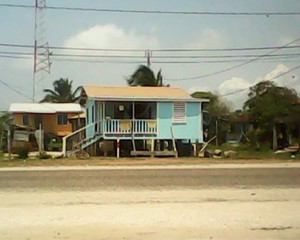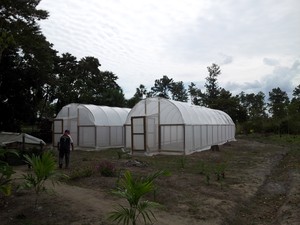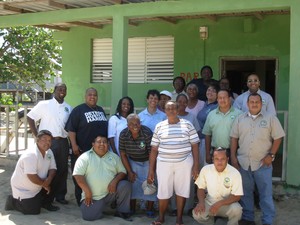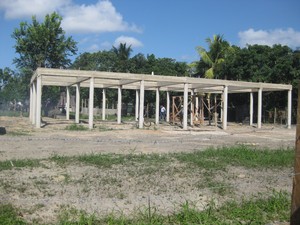International Funded partners
Since 1970, the Presbyterian Committee on the Self-Development of People has been a partner in grassroots projects around the world that seek to improve the lives of poor and underserved people. Our mission has been, and continues to be, a God-inspired work “toward the self-development of economically poor, oppressed and disadvantaged people who own, control and benefit directly” from such projects.
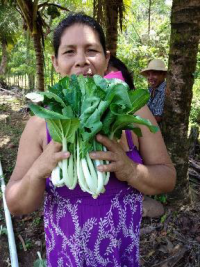 As situations in 1970 directed concerned people to launch the SDOP ministry, so situations in 2006 directed concerned people to re-examine the nature of that work and its methods. Spreading funds thinly across the world no longer seemed effective. In 2006 SDOP determined it was time to become more focused and proactive in responding to the plight of people living in poverty. From 2006 to 2010 the ministry established long-term, committed and focused relationships with community groups in the Dominican Republic; during that same time, partnerships were established with intermediary partners in different parts of the world who work directly with communities of economically poor, oppressed and disadvantaged people. Using the SDOP criteria, they established partnerships in their region. In 2010 SDOP moved its focused funding from the Dominican Republic to Belize. An intermediary partnership was established in the Dominican Republic with CE-Mujer to continue the work of SDOP. In 2013 SDOP established an intermediary partnership with the Presbyterian Church of Rwanda. In 2017 SDOP selected Panama as the next focus country.
As situations in 1970 directed concerned people to launch the SDOP ministry, so situations in 2006 directed concerned people to re-examine the nature of that work and its methods. Spreading funds thinly across the world no longer seemed effective. In 2006 SDOP determined it was time to become more focused and proactive in responding to the plight of people living in poverty. From 2006 to 2010 the ministry established long-term, committed and focused relationships with community groups in the Dominican Republic; during that same time, partnerships were established with intermediary partners in different parts of the world who work directly with communities of economically poor, oppressed and disadvantaged people. Using the SDOP criteria, they established partnerships in their region. In 2010 SDOP moved its focused funding from the Dominican Republic to Belize. An intermediary partnership was established in the Dominican Republic with CE-Mujer to continue the work of SDOP. In 2013 SDOP established an intermediary partnership with the Presbyterian Church of Rwanda. In 2017 SDOP selected Panama as the next focus country.
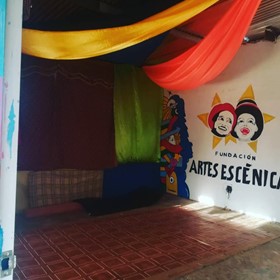
Panama, Belize, and other partnerships in Guatemala and Nicaragua
The Presbyterian Committee on the Self-Development of People (SDOP) National Committee has been working in Panama since 2017. SDOP has established several partnerships with economically poor grassroots groups in these years.
Panama is a country in Central America, bordered by Costa Rica to the west, Colombia to the southeast, the Caribbean Sea to the north and the Pacific Ocean to the south. The capital and largest city is Panama City, its metropolitan area is home to nearly half the country’s 4 million people. It is a country of contrasts and inequalities.
Fifty percent of the population in Panama is poor. The economic inequality between urban and rural areas is extraordinary. There is a huge contrast between the richest and poorest people. The wealth of the country is not well distributed.
In 2020 three community groups were approved for funding by SDOP in Panama and one in Belize: Colonense International Performing Arts Foundation (FAECI), United Producers of Valle San Miguel, and Chilibre women’s training center, Gonzalillo Community Organization and Women’s Meeting Space located in Panama, and Sandy beach Women’s Cooperative in Belize.
For all of these groups have been extremely dangerous to work during the pandemic, but none of them have ceased work and move forward.
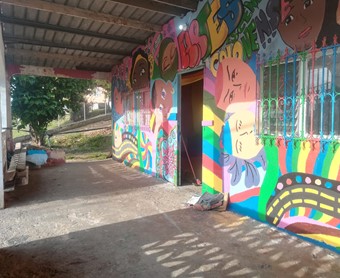
The Colonense International Performing Arts Foundation (FAECI), have stated that at the beginning it was difficult, however, they have pivoted their work and found a way to stay active, holding online meetings with the members of the Foundation and preparing a work plan that allows them to continue with their objectives, especially achieve training spaces and that all volunteers and members were ready to conduct the workshops that they will present to the general public.

The United Producers of Valle San Miguel group achieved several good results in their work. Because the group is located in a rural area with very little incidence of COVID 19 cases, the group has move forward and achieved their goals of producing bananas, malanga and vegetables.
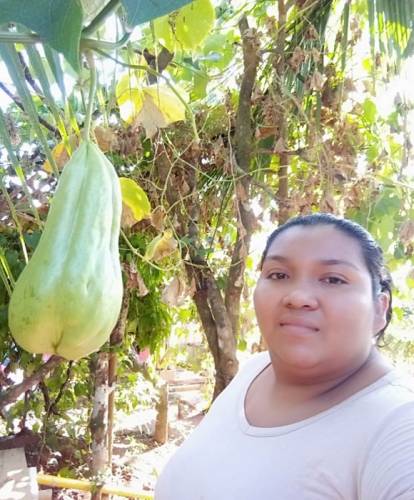
The Chilibre Women’s Training Center, Gonzalillo Community Organization and Women’s Meeting Space group has moved forward developing neighborhood gardens and a community nursery that initially provides food supplies for 75 people, with a view to reaching 300 people. In addition to self-consumption, they intend to sell the surplus of the harvest to generate income that covers the basic needs of their workers. It allows the group to apply new knowledge, learn a profession and to find leisure very useful in current times when there are still restrictions due to the COVID quarantine.
Sandy Beach Women’s Cooperative is a project in Belize that was awarded for developing a community-based cultural heritage museum on their site to provide both in-person and virtual lessons on Garifuna history and culture.
The Protestant Center for Pastoral Studies in Central America (CEDEPCA) continues to be a SDOP intermediary partner in Guatemala. During the pandemic, they also were badly affected by two storms Eta and Iota. CEDEPCA was able to continue developing projects that provide long-term assistance in rebuilding the lives of the most affected churches, students, and communities in Guatemala. The improvement of the quality of life of the most vulnerable groups has always been prioritized. CEDEPCA continues supporting women’s groups -and others- with small enterprises, to develop their capacities with skills such as organization, accounting aspects, administrative and skills pertaining to legal aspects.

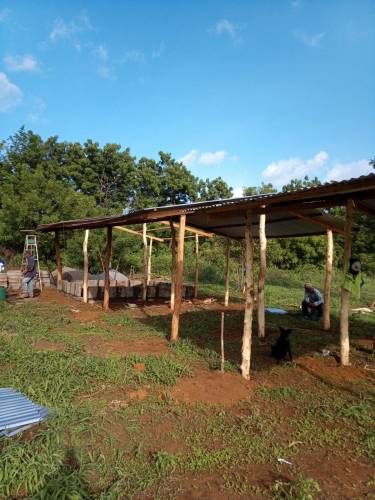 In 2019 the International Task Force selected Interchurch Center for Theological and Social Studies (CIEETS) as an intermediary partner in Nicaragua. However, the partnership started in September 2020 and since this date, CIEETS has made significant progress in administrative processes such as signing of cooperation agreements with managers delegated by the groups, disbursements of 80% of the budget requested in the economic initiatives and accompaniment and monitoring of the groups in the implementation of the initiatives. During the second part of the funding, in this first year of partnership, they will deliver the remaining 20% of the budget of the 11 awarded initiatives and / or projects, receipt of narrative and financial reports and the accountability process and delivery of means of verification (supports, photographs, videos, testimonies, and expense invoices). They will also deliver review and award of 3 new initiatives for their implementation, and monitoring and follow-up of the actions carried out in the initiatives and/ or awarded projects.
In 2019 the International Task Force selected Interchurch Center for Theological and Social Studies (CIEETS) as an intermediary partner in Nicaragua. However, the partnership started in September 2020 and since this date, CIEETS has made significant progress in administrative processes such as signing of cooperation agreements with managers delegated by the groups, disbursements of 80% of the budget requested in the economic initiatives and accompaniment and monitoring of the groups in the implementation of the initiatives. During the second part of the funding, in this first year of partnership, they will deliver the remaining 20% of the budget of the 11 awarded initiatives and / or projects, receipt of narrative and financial reports and the accountability process and delivery of means of verification (supports, photographs, videos, testimonies, and expense invoices). They will also deliver review and award of 3 new initiatives for their implementation, and monitoring and follow-up of the actions carried out in the initiatives and/ or awarded projects.

Throughout this pandemic, the SDOP International Task Force and SDOP staff have conducted community workshops and kept contact with potential community groups. They are working with SDOP to submit new proposals, including other indigenous groups who are interested to install a water system in their remote village.
The partnership in Panama and Belize are benefiting underserved communities and supporting and sharing the empowerment of poor people in rural and urban areas.
SDOP staff has been working with Presbyterian Disaster Assistance (PDA) and Presbyterian Hunger Program (PHP)staff to identify a joining partner in Africa where the three ministries will allocate together grant funds. An organization in Nigeria, CISCOPE, have been selected to be a partner in this initiative. SDOD International Task Force have approved to allocate $11,000 for this partnership.
Belize
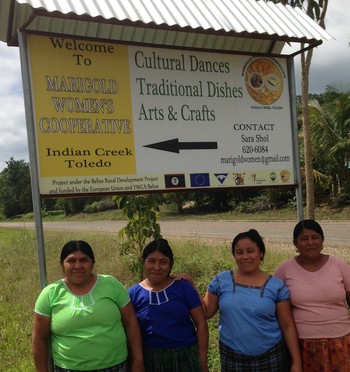
Presbyterian Committee on the Self-Development of People partnership with disadvantaged communities in Belize.
In 2010, the Presbyterian Committee on the Self-Development of People (SDOP) selected Belize as a focus country, as a part of our international funding strategy. After the first visits to the country in 2011, SDOP decided to work with grassroots communities located in the southern part of the country because of the precarious conditions and poverty in this region.
Since then, the International Task Force members and staff have worked and continue working to build relationship with communities in Stann Creek and Toledo Districts. These are mainly Mayan and Garifuna (descendants of Caribbean Indians and African slaves) communities. We have conducted numerous workshops in different cities such as Belize City, San Antonio, Belmopan, Dangriga, Seine Bight, Placencia, Punta Gorda, and San Ignacio. We have visited many Mayan villages and visited several community groups.
In this work we have been assisted by several partners in the country such as U.S. Peace Corp volunteers, community organizers, church leaders, and officers from the Department of Cooperatives and Agriculture. The Belize Department of Cooperatives is one of the main partners that has helped us to know the communities in need. They have also helped the groups by making them more aware of our funding process and building and strengthening communications between the groups and us. This collaboration is highly appreciated on our part because the groups we fund work to achieve their goals and see drastic changes in their lives and in their communities.
During the period where Belize was the SDOP focus country, 11 grassroots groups were benefited by this partnership and were approved for validation and funding. The list below shows the group’s name, location, and grant amount:
- Hopkins Farmers’ Cooperative Society Ltd, Hopkins Village, $19,600
- Sandy Beach Women’s Cooperative Society Limited, Hopkins Village Two grants, $20,050 and $22,500
- Marigold Women’s Group, Toledo District, $20,000
- Rio Grande Fisherman Cooperative, Punta Gorda, $20,000
- Placencia Tour Guide Cooperative, Placencia, $3,500
- Maya Freshwater Cooperative, near Punta Gorda, $19,500
- Seine Bight Village Council, Seine Bight Village, $19,910
- Trio Farmers in Development Pre-Cop, Trio Village, $20,042
- El Paraiso Agriculture Cooperatives Society Ltd, Bella Vista Village, $20,071
- Maskall Agriculture Farmers’ Cooperative Society Limited, $15,000
- Los pequeños Agricultores y Ganaderos (Small Farmers and Ranchers) of Nago Bank Cooperative Society Ltd. ,$15,000
In 2018, the full staff and Board of the Presbyterian Committee on the Self-Development of People traveled to Belize and celebrated there the May Presbyterian Committee on the Self-Development of People National Committee meeting.
During this travel several activities were planned with SDOP funded projects, and they turned to be very successful. The activities included:
VISIT WITH SEINE BIGHT VILLAGE COUNCIL AND CYNTHIA ELLIS
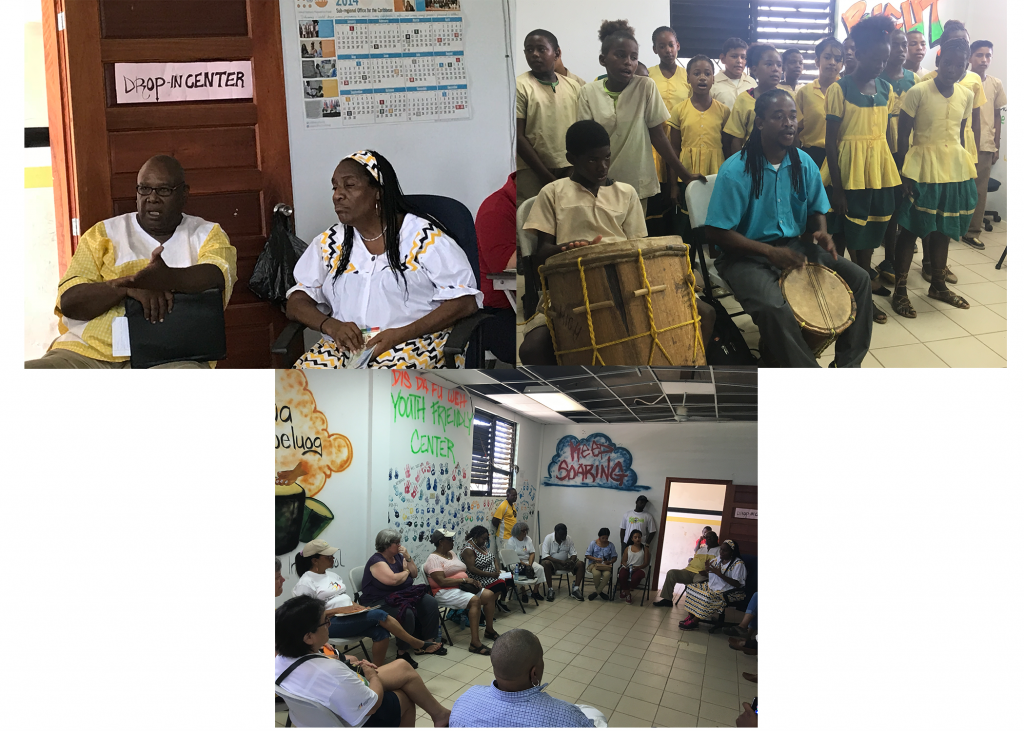
The purpose of the meeting was to listen from the Village Council President and group members about their project, which was funded by SDOP. The group was funded to revitalize the village’s image. Also, the SDOP group will participate in a Garifuna presentation that was going to be conducted by Cynthia Ellis. Cynthia Ellis is a long in-house collaborator since the beginning of the partnership trips to Belize.
VISIT AND LUNCH AT MARIGOLD WOMEN GROUP WITH FROYLA TZALAM.

Marigold Women’s Cooperative group was funded by SDOP to start a local roadside restaurant which creates employment for the members and improves the community. The Marigold group conducted a ‘Tortilla making presentation’ and the group members invited the SDOP team members to make tortillas as well for the whole group. The group also did a Mayan dance presentation.
Froyla Tzalm, a SDOP collaborator, conducted a Mayan culture history presentation over lunch.
TRIO FARMERS IN DEVELOPMENT PRE-COOPERATIVE VISIT WITH AGRICULTURE OFFICERS FROM BELIZE DEPARTMENT OF AGRICULTURE

Trio Farmers in Development Pre-cooperative group was funded by SDOP to build tunnels that will improve the yield of their crops. The farmers of this cooperative are trying a new method of growing seedlings. The group members did a presentation about their project and how this method of growing has helped them. They also discussed with the SDOP team their struggles and how they are growing medicinal plants that has improved the community and group members health issues.
VISIT WITH SANDY BEACH WOMEN’S COOPERATIVE

Merlene Castillo is the President of Sandy Beach Women’s Cooperative and Hugo Miranda is a Cooperative officer of the Belize Department of Cooperatives. A PowerPoint presentation was showed to the attendees with pictures of the before and after of all projects funded in Belize by SDOP with the collaboration of the Department of Cooperative and Agriculture. Members of both organizations exchanged awards and recognitions. Students from the local elementary and middle school presented a dance show to the audience.
In 2020, two community projects from Belize were presented for validation and funding: Cover Structure Project from The Western Mopan Farmers’ Cooperative Society Limited group, located in San Jose Soccutz, Cayo District and House of Watina Garifuna Cultural Heritage Museum from Sandy Beach Women’s Cooperative group located in Hopkins Village.
SDOP National Committee approved for funding the two group projects: the first group for $19,575 and the second for $24,000.
The Cover Structure Project’s first goals are to produce agriculture commodities under a controlled environment, and supply the San Ignacio Market with a wide assortment of fresh agriculture commodities.
The second project goal is to build a community-based cultural heritage museum on the site of the Sandy Beach Women’s Cooperative to provide both in-person and virtual lessons on Garifuna history and culture.
Intermediary Partners
Presbyterian Church of Rwanda
Rwanda
The Presbyterian Church of Rwanda (EPR) has been a Presbyterian Committee on the Self-Development of People (SDOP) intermediary partner in Rwanda since 2013. Thousands of people, members of grassroots organizations and poor community members have been benefited by the SDOP- EPR partnership. The annual reports clearly reflect collaboration between the Church and community groups.
With the funding received from SDOP, EPR has supported many different community projects. These projects include initiatives such as commerce, agriculture, breeding, social (construction, health, etc.).
As they stated in their reports and quote:
“The general goal was to empower vulnerable people who have no access to financial institutions because they have no way to guarantee a loan. Our aim was to allow them to initiate small businesses with loans from savings groups. This goal was achieved because these people can now take small loans and the savings funds continue to grow. Members of the savings groups were able to dramatically improve their lives through the small businesses they were able to establish. The impact will be seen into the future as the children of these families benefit from a higher standard of living and better nutrition and health care, school attendance.
To achieve its mission to rescue people in extreme poverty and give them hope for the future, EPR has recruited field technicians — specialists who can help people understand ways to reduce poverty. These technicians work to help people address their own problems and invite them to join appropriate self-help groups. The role of our technicians is to show the way out of poverty but not to resolve problems for people. The people identify for themselves the challenges that they face and propose the solutions, with the advice of our technicians.
The approach of saving and credit group is the one way that EPR has taken to help the poor people to solve their problems themselves. Most of the poor people don’t have the self- esteem, they don’t hope their future. Through this approach, the poor create the ability to solve the problems they face themselves”.
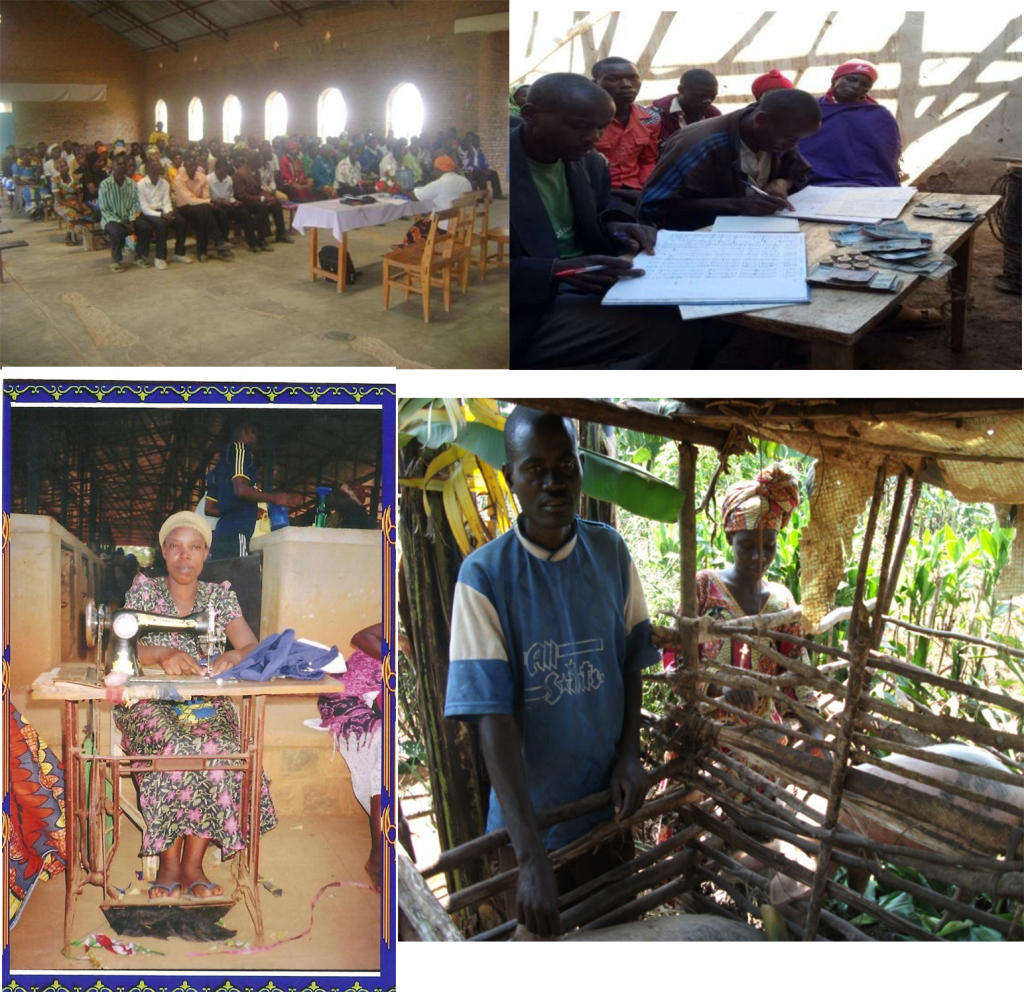
As other SDOP partners, the Presbyterian Church of Rwanda has responded to the COVID-19 crisis. They have gotten creative with the ongoing closure of churches and are visiting parishioners via phone and WhatsApp; providing food relief and the means to raise livestock to community members. They are also assisting families whose houses and property have been destroyed in recent heavy rains.
In their most recent annual report, they stated “The EPR alongside the Rwandan government has done its best with limited means to assist vulnerable people. It has been a blessing from PCUSA which allowed the EPR to use Twenty-five thousand US Dollars ($25,000) for food aid to the poor families affected by Covid-19. With the support from PCUSA, the EPR continues to maintain the faith of its members and to assist the vulnerable people and to serve the Rwandan community as a whole. May God richly bless the PCUSA, may He bless the EPR and bless the EPR- PCUSA partnership”.
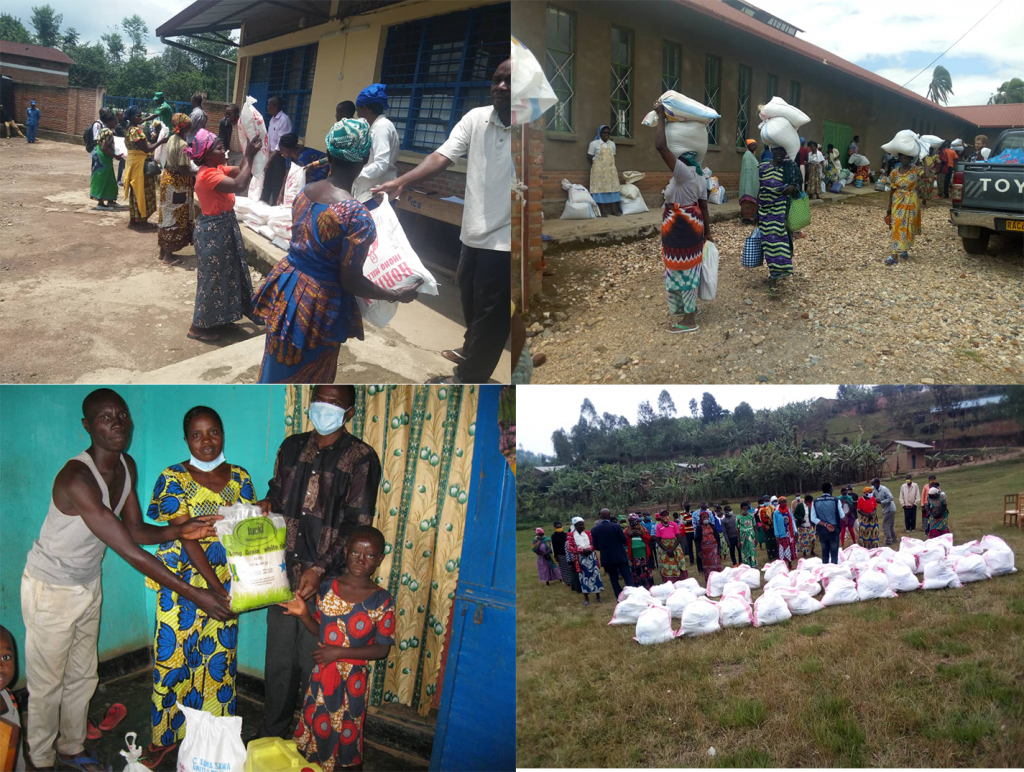
These are some of the pictures of their fields: Uwamahoro in Climbing beans and Vuganeza’ Banana plantation:
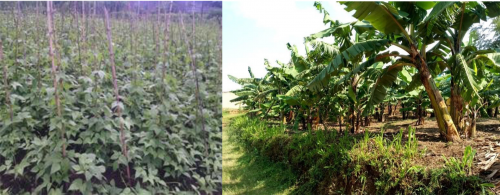
Centro de Solidaridad Para el Desarrollo de la Mujer, Inc.(CE-MUJER)
Dominican Republic
CE-MUJER is committed to improving the quality of life for women and communities by assisting in their empowerment for gender equality through self-management, education, training in non-traditional technical skills, income generation, health and public politics with influence on both the national and local level.
In 2013, the Presbyterian Committee on the Self-Development of People identified Solidarity Center for Women’s Development, Inc. (CE-MUJER) as an intermediary partner in the Dominican Republic. They use SDOP criteria to fund projects in the Dominican Republic.
CE-MUJER had benefited and continue to benefit thousands of women that are members of women’s organizations, associations, and federations. The DR Women’s federations are the broader women’s organizations located in different provinces. These federations lead the associations and the grassroots women’s organizations. The variety of projects funded in these last 7 years is very extensive. These projects include small entrepreneurs, youth issues, agricultural initiatives, revolving funds, water projects, among others. The SDOP-CE-MUJER partnership/collaboration has made a great impact in all and were beneficial in the lives of women. Last year alone 1,176 women were benefited thanks to CE-MUJER- SDOP partnership.
In their last 2021 report they explained how CE-MUJER’s work needed to pivot because of the COVID-19 pandemic. They stated “ During this situation, work in our offices continues semi-face-to-face, with a lot of virtual work as possible, since the reality of the Dominican countryside does not allow virtual work exclusively. In this context, we defined a new way of carrying out the projects since they constituted a great opportunity to support a group of families facing difficulties due to the risk of contagion. A meeting was held with the CE-MUJER staff that make up the Work Management Team to analyze the reality of the related organizations and the possibilities of developing sustainable projects in the midst of this situation”
These are pictures of the last CE-MUJER funded projects:


